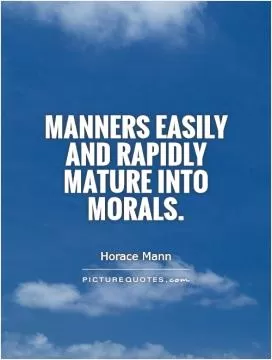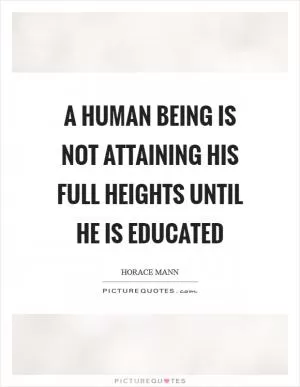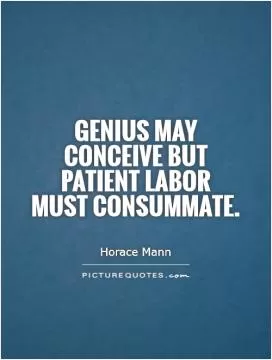Affectation hides three times as many virtues as charity does sins

Affectation hides three times as many virtues as charity does sins
Horace Mann, often referred to as the father of American public education, was a prominent advocate for educational reform in the 19th century. He believed that education was the key to social progress and that all children, regardless of their background, should have access to a quality education. Mann's dedication to improving the education system in America was driven by his belief that education was the great equalizer, capable of lifting individuals out of poverty and ignorance.In the context of the quote "Affectation hides three times as many virtues as charity does sins," Mann's work can be seen as a reflection of this sentiment. Mann believed that true virtue lies in the genuine desire to improve oneself and others, rather than in the outward display of charity or generosity. He understood that true virtue is often hidden beneath the surface, obscured by the trappings of affectation and insincerity.
Mann's commitment to educational reform was driven by a deep sense of moral duty and a genuine desire to improve the lives of others. He believed that education was not just about acquiring knowledge, but about developing character and instilling values such as honesty, integrity, and compassion. Mann understood that true virtue is not about grand gestures or public displays of generosity, but about the everyday actions and choices that reflect one's true character.
Mann's work in education was guided by the belief that every child has the potential to succeed, regardless of their background or circumstances. He believed that by providing children with a quality education, they could overcome the obstacles of poverty and ignorance and achieve their full potential. Mann's commitment to educational reform was driven by a deep sense of compassion and a genuine desire to help others.












 Friendship Quotes
Friendship Quotes Love Quotes
Love Quotes Life Quotes
Life Quotes Funny Quotes
Funny Quotes Motivational Quotes
Motivational Quotes Inspirational Quotes
Inspirational Quotes